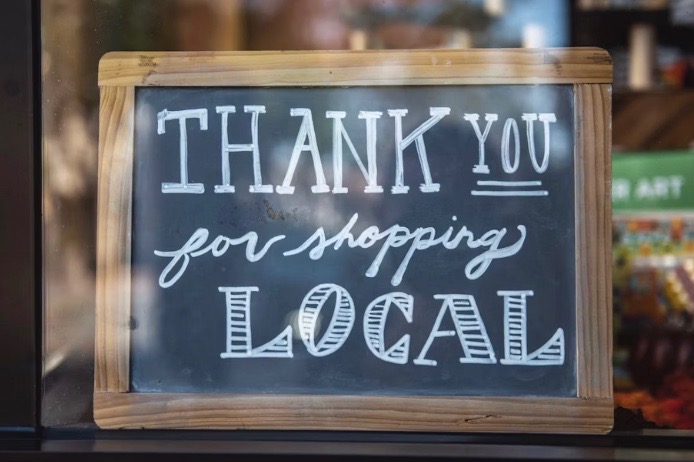Earline Hebert Adams
December 4, 2006
Houma woman nabbed with crack cocaine
December 6, 2006When state lawmakers convene at Friday’s special session, local delegates predict Gov. Kathleen Blanco’s “wish list” could face opposition if coastal protection and rising insurance costs aren’t a priority.
Blanco issued the call for the special session to address a wide range of issues including insurance relief, infrastructure improvements, tax breaks and possible raises for public school teachers, state workers and police and firefighters.
The 10-day session will end Dec. 17.
The special session has been a sore topic among lawmakers n including Terrebonne Parish representatives n who said the governor’s agenda was vague and hastily called. Blanco’s call includes over $1 billion in spending n an expected $827 million surplus from last year and another $1 billion from this year’s budget.
The exact amount available to spend has yet to be determined, another sore point for local lawmakers. The state’s revenue-estimating panel was expected to convene Tuesday to hammer out the budget.
For her part, Blanco’s “call” includes several spending projects for road repairs, retirement debt payments, tax breaks for a host of groups, and plans to bail out Louisiana Citizens Property Insurance Corp., the state-run insurance company.
“This unprecedented revenue allows us to give money back to the people of Louisiana in a targeted manner that will help families, spur our economy and continue to strengthen our businesses,” Blanco said in a statement issued over the weekend. “I look forward to working with our lawmakers on this effort.”
When the subject of a special session first arose, lawmakers expected rising insurance costs and coastal protection to be the chief focus. However, only rising insurance costs are on the agenda.
“My office receives calls on this matter practically every day,” said State Sen. Reggie Dupre (D-Bourg). “The issue of insurance affordability for working families must be addressed. It’s difficult when the only option some policyholders have is to purchase homeowner’s insurance through the state-run Citizens plan.”
Many lawmakers are proposing recapitalizing or restructuring the company to help relieve the post-Katrina/Rita prices homeowners are currently being charged.
“Everyone’s premiums have gone up, especially those south of Interstate 10,” said state Rep. Warren Triche (D-Thibodaux). Homeowners along the state’s coast have seen as much as a 15 percent hike in premium costs, squeezing many out of the local market, he added.
Terrebonne Parish’s recent implementation of the International Residential Building Codes was intended to help make homes hurricane-safe and reduce homeowners’ insurance costs, said state Rep. Gordon Dove (R-Houma). But the increased cost of building stronger homes teamed with the rising price in insurance coverage has knocked many first-time homebuyers out of the market, he said.
“What is hurting people is they qualify for homes until the insurance premium is plugged in,” Dove said. “Along with the additional cost of building a new house, it’s driving housing costs out of the ballpark.”
Dove said insurance premiums could potentially derail the region’s recent growth trend. It’s a concern shared by fellow state Rep. Damon Baldone (D-Houma).
“More than anything, insurance costs can stall or kill our economy now,” he said.
But lawmakers are relying on insurance companies in large part to help keep costs in line. “The problem is this is a private sector issue, really. There is very little we can do,” Baldone said.
Local lawmakers are hoping to see proposals to reinsurance the Citizens plan to cover initial losses and entice insurers to continue coverage across the region.
“The state is going to have to do something similar to what Florida and Mississippi are doing,” Dove said. “The state is going to have to step up and fund windstorm damage on homes so residents south of Interstate 10 can find reasonably priced coverage. We’ve got to make insurance affordable along the coast areas that are vulnerable to hurricanes and flooding.”
Local lawmakers are united on the call to address insurance, but proposed raises and other pre-election promises Blanco has included in her agenda could face a rougher ride in this special session.
“My first impression when the Republicans and state treasurer suggested a special session was that the surplus was going to be used to pay off additional premium costs,” Triche said. “But now that’s changed to give anybody and everybody a raise it looks like.”
Triche explained that past attempts to provide raises with one-time or non-renewable sources failed because law prohibits it. “The governor is again bordering on the line of whatever we do whether it is valid, legal and legitimate according to existing law,” he said.
Several of the lawmakers agreed that, although the raises may be warranted, using surplus and Federal monies for raises may not be in the cards.
A wiser use of the funds, Triche said, would be to put the money into the state’s rainy day fund. “We’re being asked to spend tons of money, billions of dollars, in areas that the Feds may not have earmarked it for,” he explained.
Local lawmakers were more critical of what wasn’t on Blanco’s agenda: Coastal protection. This week’s vote in Congress on oil revenue sharing along the state’s coast should supply much-needed funds to restore Louisiana’s first line of defense.
But many fear the state’s failure to address levees and barrier islands outside the Federal government’s care could be shortsighted in the long run.
“We’ve got to show the Federal government that we are willing to spend some of our monies to fix this,” Dove said. “The levees, barrier islands and coastal restoration are our first line of defense. That has to be recognized by this administration and this governor.”
Louisiana has used a number of Band-aids along its coast to stop the erosion, Triche said, including rocks, sand, tires and Christmas trees. But nothing has worked.
“This is bigger than the Louisiana economy can hope to back and support,” he said. “It is going to take federal money or it will always be a losing battle against Mother Nature. Louisiana can only maintain a drop in the bucket, and it is a mighty, mighty deep and wide bucket that has to be filled when you consider how much coastline we lose every storm.”









